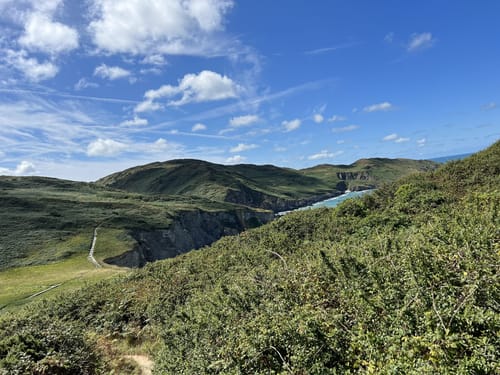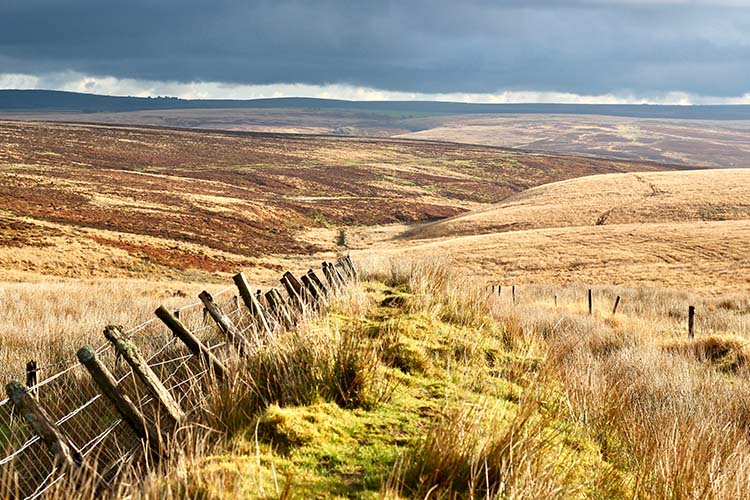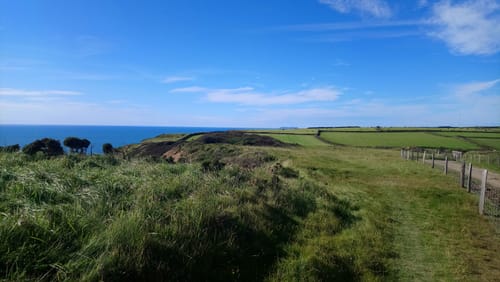Unveiling the Beauty and Diversity of Devon: A Geographic Exploration
Related Articles: Unveiling the Beauty and Diversity of Devon: A Geographic Exploration
Introduction
With great pleasure, we will explore the intriguing topic related to Unveiling the Beauty and Diversity of Devon: A Geographic Exploration. Let’s weave interesting information and offer fresh perspectives to the readers.
Table of Content
Unveiling the Beauty and Diversity of Devon: A Geographic Exploration

Devon, a county nestled in the southwest of England, boasts a captivating blend of rugged coastlines, rolling hills, and vibrant towns. Its geographic tapestry, as depicted on a map, reveals a landscape rich in history, culture, and natural beauty. Understanding the spatial arrangement of Devon’s features provides valuable insight into its unique character and the experiences it offers.
A Coastal Tapestry of Rugged Beauty
Devon’s coastline, stretching over 200 miles, is a defining feature. The northern coast, known as the North Devon Coast, is characterized by dramatic cliffs, towering headlands, and sandy beaches. The iconic Exmoor National Park, a haven for wildlife and walkers, occupies a significant portion of this area.
The southern coast, known as the English Riviera, presents a contrasting landscape. Here, gentle slopes meet the sea, creating sheltered bays and picturesque harbors. The towns of Torquay, Paignton, and Brixham, known for their Victorian architecture and mild climate, dot this coastline.
The Heart of Devon: Rolling Hills and River Valleys
Moving inland, the landscape transforms into rolling hills and fertile river valleys. Dartmoor National Park, a vast expanse of granite moorland, dominates the central region. Its rugged beauty, ancient stone circles, and wild ponies attract visitors from far and wide.
The River Dart, winding its way through the heart of Devon, creates a picturesque valley. The historic town of Dartmouth, nestled at its mouth, is a popular destination for its maritime heritage and scenic beauty.
Exploring the Towns and Villages
Devon’s towns and villages are as diverse as its landscape. The historic city of Exeter, with its Roman and medieval roots, serves as the county’s administrative center. Plymouth, located on the southern coast, is a bustling port city with a rich naval history.
Smaller towns like Barnstaple, Tiverton, and Totnes each possess unique charms and traditions. These towns offer a glimpse into the county’s rich cultural heritage, with their cobbled streets, traditional pubs, and independent shops.
A Map’s Significance: Navigating Devon’s Treasures
A map of Devon serves as a vital tool for exploring this diverse county. It provides a visual understanding of its geographical layout, allowing visitors to plan itineraries, identify points of interest, and navigate its winding roads.
Beyond its practical use, a map reveals the interconnectedness of Devon’s landscape, highlighting the relationship between its coastal beauty, inland valleys, and historic towns. This interconnectedness shapes the county’s unique character, making it a destination rich in both natural and cultural experiences.
FAQs
What are the best ways to explore Devon?
Devon offers a range of exploration options, from coastal walks and cycling trails to scenic drives and boat trips. The county is well-equipped with public transport, including buses and trains, making it accessible even without a car.
What are some must-see attractions in Devon?
Devon boasts a multitude of attractions, including:
- Dartmoor National Park: Explore its rugged beauty, ancient stone circles, and wild ponies.
- Exmoor National Park: Discover its dramatic coastline, rolling hills, and diverse wildlife.
- The English Riviera: Enjoy its sheltered bays, Victorian architecture, and mild climate.
- The River Dart: Take a boat trip along its scenic valley, visiting Dartmouth and its historic harbor.
- Historic Cities: Explore the Roman and medieval history of Exeter and the naval heritage of Plymouth.
Is Devon suitable for families?
Devon is an excellent destination for families, offering a range of activities, attractions, and accommodations catering to all ages. From beaches and theme parks to farm visits and historical sites, there is something for everyone.
Tips
- Plan your trip in advance: Devon offers a wide range of attractions, so planning your itinerary in advance will help you make the most of your time.
- Consider the season: Devon’s climate varies throughout the year. Summer offers warm weather and sunny days, while autumn brings vibrant colors and cooler temperatures.
- Embrace the outdoors: Devon is a haven for outdoor enthusiasts. Take advantage of its scenic trails, beaches, and national parks.
- Explore the local culture: Devon boasts a rich cultural heritage. Visit its traditional pubs, markets, and festivals to immerse yourself in the local way of life.
Conclusion
A map of Devon unveils a captivating landscape, revealing a tapestry of rugged coastlines, rolling hills, and vibrant towns. It serves as a guide to navigating this diverse county, highlighting its natural beauty, cultural heritage, and unique character. Whether seeking adventure, relaxation, or a taste of history, Devon offers a wealth of experiences for every traveler.






Closure
Thus, we hope this article has provided valuable insights into Unveiling the Beauty and Diversity of Devon: A Geographic Exploration. We thank you for taking the time to read this article. See you in our next article!

